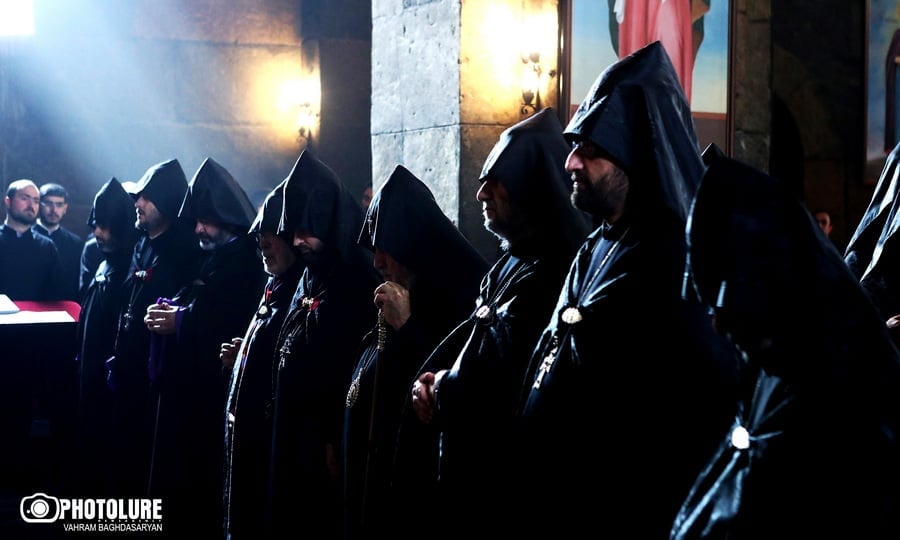I understand when the propagandists of power say, “Whoever opposes our leader is either a Russian spy or a fool.” Regardless of how sincere that position may be, it is a position. I also understand when this government, like all previous ones, says that “there is no game against them.” You can complain, disagree, warn that it’s an illusion—it doesn’t matter; this is an old (34-year) Armenian political tradition.
What troubles me more is when people avoid taking a stance altogether. For example, clergy. Do you agree that during the liturgy, it is permissible not to pronounce the name of the Catholicos of All Armenians? Yes or no. Do you agree that a secularized priest—that is, a layperson—can celebrate the liturgy? Then am I allowed to do it too? Do you agree that the Prime Minister calls Catholicos Garegin II “Ktrich Nersisyan”? These, as is said in journalism, are “closed questions,” requiring only a positive or negative answer.
Not an hour of talking, evading, giving “tricks” like our legendary footballer Levon Ishtoyan, not even declaring that “the episcopate considers it condemnable” (which, even if condemnable, does that mean it’s allowed next Sunday or not), but individually and clearly saying, “yes” or “no.” “Let your word be ‘Yes, yes’ and ‘No, no’; anything beyond this comes from evil” (Matthew 5:37). The same unequivocal attitude is required in other matters. In our society, there are brainwashed citizens who believe that our imprisoned bishops are terrorists. There are also cynical propagandists who claim this “officially.”
Again, it doesn’t matter whether it’s said sincerely or merely to deceive people. But there are also those who either remain silent or, by not saying “yes” or “no,” start giving “tricks”—“but what about Serzh’s time…,” or “but what if the Catholicos has a child?” For me, it is especially unacceptable when people remain silent, afraid to utter even a whisper. Or, more precisely, they are afraid, but pretend to be indifferent: “everyone is the same.”
Read also
Yet, on the issue of political prisoners, all normal citizens must take a position. It is not that Republican Party members defend only Republicans, or Dashnak members only Dashnaks. This “doesn’t count”—a principled “yes” or “no” recognizes no parties or factions.
Aram ABRAHAMYAN






















































